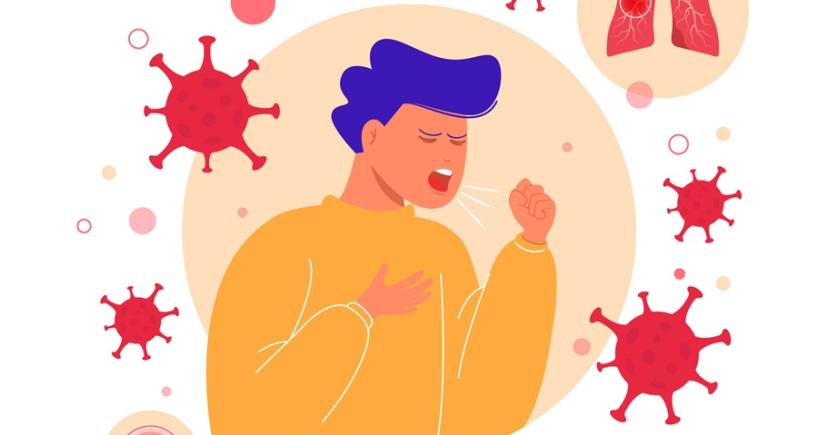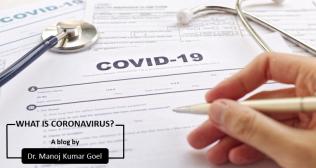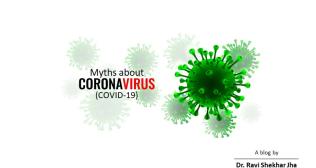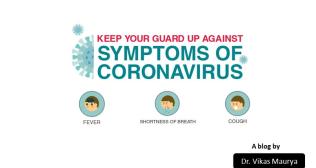
What is Hemoptysis: Understanding Causes, Diagnosis, Treatment
Hemoptysis: Understanding What It Is!
The term hemoptysis refers to coughing up blood originating from the lower respiratory tract. Often, hemoptysis is not an ailment but can indicate an array of underlying problems and should, therefore, be adequately evaluated by a healthcare professional. The coughed-up blood can appear in several forms but is often frothy and bright red. The quantity can be as minimal as blood stains in the spit (sputum) to higher quantities of blood or clots that would require the immediate attention of a healthcare professional. Quantities larger than 600 mL are considered massive hemoptysis and need immediate medical attention.
Delving Into the Causes of Hemoptysis
There are several causes of hemoptysis:
Pathogenic Causes
Pneumonia is a common cause of hemoptysis. In pneumonia patients, healthcare professionals must check for the symptoms and signs of infection, such as fever, pain in the chest, and productive cough. It is also crucial to obtain any relevant contact and travel history. Tuberculosis is a prevalent cause of massive hemoptysis. It is, hence, reasonable for a medical practitioner to check for tuberculosis risk factors. One such risk factor is immunosuppression, which may be secondary to immunosuppressive medicines or conditions such as human immunodeficiency virus (HIV) infection or diabetes mellitus.
Neoplastic Causes
Neoplastic lesions that cause hemoptysis can be divided into primary pulmonary and metastatic lesions. For individuals with such lesions, a thorough assessment of medical history and tests specific for other primary malignancies, such as kidney, breast, ovarian, cervical, and gastrointestinal cancers, are recommended. It is also essential to elicit constitutional symptoms, such as weight loss and appetite, and consider the risk factors for primary lung carcinoma, such as smoking and occupational hazards.
Vascular Causes
Pulmonary embolism is a vascular cause of hemoptysis. In patients with suspected pulmonary embolism, the healthcare professional should ask if they have a history of surgery or immobilization. The limbs of the patients should also be assessed for signs of deep vein thrombosis. Other signs and symptoms to look for include shortness of breath, chest pain, tachypnoea (abnormally rapid breathing), and tachycardia (heart rate that exceeds the normal resting rate).
Autoimmune Causes
Hematuria, joint pain, or swelling might suggest pre-existing autoimmune diseases such as systemic lupus erythematosus (SLE) or Goodpasture syndrome (a group of acute illnesses that impact the lungs and kidneys). SLE patients might also exhibit the characteristic butterfly rash or other skin lesions. If an autoimmune disease is suspected, the patient should be referred to a specialist center for further evaluation.
Drug-Related Causes
Anticoagulants and antiplatelet agents are common drugs that may cause hemoptysis. It is important to obtain further history (medicinal history) to foretell the consequences of stopping medicines as part of management.
Inhalation of Foreign Entities
The inhalation of tiny objects, such as small toy parts or peanuts, can cause injury and bleeding from the airways. This can recurrently happen in children and, when suspected, should be addressed by a pediatrician (a doctor specializing in children’s care).
Shedding Light on the Diagnosis of Hemoptysis
Ideally, all patients displaying hemoptysis should undergo further tests to eliminate any underlying severe causes. Besides routine physical examinations, healthcare professionals will advise a chest X-ray for initial assessment. If it is normal, further assessment, such as a chest computed tomography (CT), might be required. A bronchoscopy—an endoscopic examination of the airways—is often performed to recognize the bleeding source or get a tissue biopsy from suspicious lesions.
Besides these, healthcare professionals might order an electrocardiogram (ECG) or echocardiogram (echo) if a cardiac problem or pulmonary embolism is suspected.
Other tests might also be performed, such as sputum and culture analysis, complete blood count, and tests to assess blood clotting ability. In uncertain cases, more advanced tests, such as CT angiograms (CT to depict specific blood vessels) or even Positron Emission Tomography/CT (PET or PET/CT), might be advised for further examination.
Exploring Possible Treatment Options for Hemoptysis
The treatments adopted for hemoptysis target varied underlying causes. In patients suffering from long-lasting lung disease and chronic bronchitis, vaccinations and long-term macrolide (group of antibiotics) therapy might prevent lung infections or infective aggravations.
If patients are hospitalized, the administration of intravenous or nebulized tranexamic acid can help decrease the bleeding, and cough suppressants and antibiotics can reduce the coughing.
In massive hemoptysis, emergency procedures might be required, such as bronchoscopy and intubation (a process where a healthcare professional inserts a tube into an individual’s mouth and down into their trachea) to secure the airway.
An arteriogram is first conducted to locate the bleeding bronchial artery blocked off with several endovascular agents, such as a gelatin sponge, microspheres, polyvinyl alcohol particles, or even metallic coils, to stem the bleeding.
The success rate of these procedures ranges from 60% to 90%, but the risk of recurrent bleeding can be as high as 30–50% in patients with an aspergilloma or lung cancer.
Coughing Up Blood: Home Care Remedies
Medications that stop coughing (cough suppressants) may help if heavy coughing is experienced. However, these medications might block the airway. Hence, always consult a medical professional before you use these medications. Keep track of the duration you cough up blood and the quantity of blood mixed with the mucus.
Hemoptysis is predominantly observed in the healthcare setting. It can lead to critical complications and, therefore, requires careful assessment of the severity of the condition and status of the patient. Several health conditions, diseases, and medical tests might cause an individual to cough up blood. When experiencing symptoms, one should seek immediate medical attention.
Popular Searches
Hospitals: Cancer Hospital in Delhi | Best Heart Hospital in Delhi | Hospital in Amritsar | Hospital in Ludhiana | Hospitals in Mohali | Hospital in Faridabad | Hospitals in Gurgaon | Best Hospital in Jaipur | Hospitals in Greater Noida | Hospitals in Noida | Best Kidney Hospital in Kolkata | Best Hospital in Kolkata | Hospitals in Rajajinagar Bangalore | Hospitals in Richmond Road Bangalore | Hospitals in Nagarbhavi Bangalore | Hospital in Kalyan West | Hospitals in Mulund |
Doctors: Dr. Rana Patir | Dr. Rajesh Benny | Dr. Rahul Bhargava | Dr. Jayant Arora | Dr. Anoop Misra | Dr. Manu Tiwari | Dr. Praveer Agarwal | Dr. Arup Ratan Dutta | Dr. Meenakshi Ahuja | Dr. Anoop Jhurani | Dr. Shivaji Basu | Dr. Subhash Jangid | Dr. Atul Mathur | Dr. Gurinder Bedi | Dr. Monika Wadhawan | Dr. Debasis Datta | Dr. Shrinivas Narayan | Dr. Praveen Gupta | Dr. Nitin Jha | Dr. Raghu Nagaraj
Specialities: Heart Lung Transplant | Orthopedic |



















